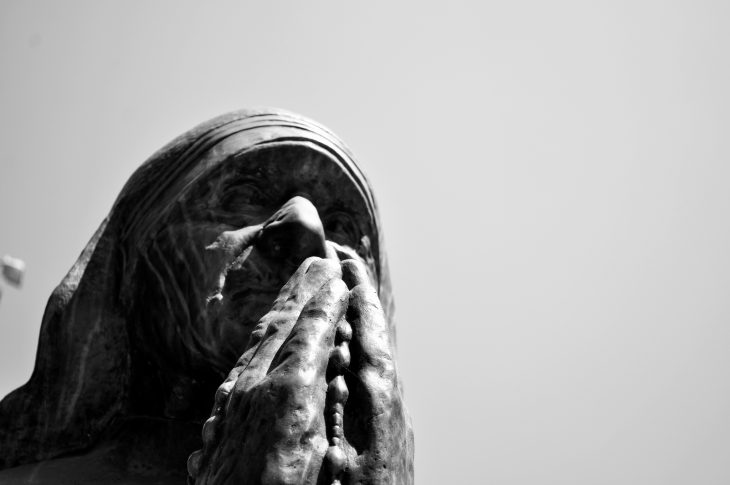Conservatives, by definition, like the old days and the old ways. When the prophet Jeremiah cries out: “Stand at the crossroads and look; ask for the ancient paths, ask where the good way is, and walk in it, and you will find rest for your souls (Jeremiah 6:16, NIV),” we instinctively respond, “Amen!”
But the types and speed of changes we see in our country lead many of us to believe our nation is at a “tipping point.” Malcolm Gladwell famously defines this as the magic moment when an idea, trend, or social behavior crosses a threshold, tips, and begins to spread like wildfire. An example he gives is Sharp’s facsimile machine introduced in 1984. They sold slowly until 1987 when enough people had faxes that it made sense that everyone should have one. That year was the fax machine tipping point – they began to sell by the millions.
Similarly, the changes we’re seeing enacted in our nation didn’t happen overnight. Changes that have been coming for years have now reached critical mass. Ideological battles that have been waged for years have now been won and lost. The creep of naturalism in the universities of the 60’s has now become the postmodern thinking and direction of the nation. Some of what we might consider core beliefs of our nation are in the process of being dismantled or, as our previous President promised, “fundamentally changed.” Our economic structure is sliding from capitalism to socialism. We’re at a tipping point.
As a pastor, churchman, and theologian, my focus is the church: she is in the throes of change as well.
Anglican Bishop Mark Dyer once said that the best way to understand the modern church is to realize that about every five hundred years the church feels compelled to hold a giant rummage sale. It seems we may be in the middle of one now. Just look at our history:
- 500 years ago we had the Great Reformation (Catholicism to Protestantism).
- 500 years before that was the creation of the monasteries by Gregory the Great (which saved the message of the gospel from an increasingly corrupt church).
- 500 years before that was the split between East vs. West (over doctrinal issues).
- 500 years before that was the birth of the Church.
In the church’s rummage sale, she gets rid of her old baggage and re-makes herself. This can be positive or negative, depending on what the church jettisons. We’re in a rummage sale now, and the church is debating how she will re-make herself.
What will the church look like? Some churches are chasing full-tilt after secular multiculturalism. Wanting to be seen as “inclusive,” they are clearly controverting – even mocking – biblical teaching in the areas of sexuality and morality. Other “emerging” churches are pursuing the postmodern agenda. Questions that were once cut and dried for Christians (efficacy of the Word of God, supremacy of Christ, reality of ultimate truth, effectiveness of prayer) are now more nebulous.
At the risk of overextending my quota of analogies, let me tell you about the Qin dynasty of ancient China. They were in desperate need of security against the barbaric, horse-riding Mongols from the north. So they built the great wall. They built it high enough so no one could climb over, long enough so no one could go around it, and thick enough so no one could break it down.
It took generations to build the wall, and when it was finished, China felt at ease. But within the first 100 years of the completion, the Great Wall was breached and China was invaded three times. Not once was the wall scaled, broken through, or circumvented. Each time China was invaded, a gatekeeper was bribed and the Mongolians marched right through the gates.
Let’s use this as an analogy for the church. The invaders aren’t people, but “isms”. Naturalism, secularism, modernism, and hedonism began to make inroads into the church in the 60’s. Some in the church turned their focus to bricks and mortar. For safety and security, they began to build a wall. Theology was tightened. Doctrine was solidified. Fundamentals were emphasized. But others opened the gates.
The church’s weakness is not the integrity of her message, but the integrity of the gatekeepers. We stopped looking for the ancient paths and started looking for the new, the novel, the popular. We didn’t want to be found on “the wrong side of history.”
Over the years at various times, we gatekeepers have fallen asleep or left the gate open. Sometimes we simply looked the other way – treating the moral and ethical requirements of the Bible like a spiritual buffet line, picking what we like and leaving what we don’t. Consequently, we no longer have the integrity to prophetically speak truth to power. We lack courage when facing threats, ridicule, and name-calling. We desire acceptance, wealth, and fame. We have forgotten James’ warning that choosing to be a friend of the world is enmity with God.
But I believe the church is stirring from her slumber. God’s Spirit is restoring confidence and courage. The church certainly has baggage with which she could do away. But whatever she discards in the rummage sale, it must never be her adherence to Scriptures. The invaders are already here. So we will resume our posts on the wall, remain alert, hold fast to the truth of the Scriptures, and blow the trumpets at the first sign of danger. The consequences will be dire if we don’t.










 RSS - Posts
RSS - Posts